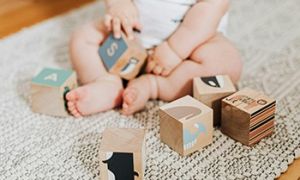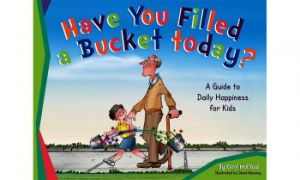

You have a new child starting in your room, their excited, their parents are happy and the family seems to be settling in well with the centre environment. The first day has come for the child to start, parents say goodbye and then the child starts - screaming, crying, pulling, begging their parent not to leave.
Toddlers want to do more on their own and do not like it when you begin to establish limits on their behaviour. Tantrums can become frequent when a toddler can't get what they want. This is a natural part of their social and emotional development. Toddlers are also curious about other people and will tend to stare at anyone who attracts their attention.
Toddlers use language in more sophisticated ways during this phase of their life. This occurs as a toddler has a better grasp of the rules of the language, through increased vocabulary and learning new skills. They are becoming increasingly familiar with the concept of conversation and through play and social interactions it strengthens and improves their verbal skills.
Toddler advance and gains new skills in Gross Motor Development milestones achieved throughout earlier years. Co-ordination and challenges that could not be performed before such as hopping, skipping and balancing are now easier to attempt. Toddlers are more agile and athletic during this stage than before.
As your toddler progresses during this stage, Fine Motor Development becomes increasingly important. Not because this helps your toddler become more independent, it's because it is linked to problem solving and cognitive development & learning.
Toddlers have a greater understanding of the world around them by this stage. Their cognitive development (also known as intellectual development and thinking skills) continues to increase during this period. The ability to learn new skills, understanding of concepts, begins to make sense of current events, solve problems and use of memory steadily improves. Toddlers will begin to interpret the meanings of their experiences and they also have a vivid imagination.
Attention deficit hyperactivity disorder (ADHD) is a psychiatric disorder of the neurodevelopmental type in which there are significant problems of attention and/or hyperactivity and acting impulsively that are not appropriate for a person's age. These symptoms must begin by age six to twelve and be present for more than six months for a diagnosis to be made. In school-aged children the lack of focus may result in poor school performance. This article gives you info on ADHD in Children.
Autism is a disorder of neural development characterized by impaired social interaction and communication, and by restricted and repetitive behaviour. These signs all begin before a child is three years old.
As a parent, your behavioural expectations of your child can be higher than what is actually developmentally appropriate for your child's age.
It is fairly common for your child to behave inappropriately as they begin to grow and gain independence. It is necessary to discipline your child in order for them to learn to accept a set of rules, behave in an acceptable manner, respect limits of freedom (rather than having their own way) and obey you (the parents). Discipline is an action directed towards improving the individual child.
 Here is the list of the EYLF Learning Outcomes that you can use as a guide or reference for your documentation and planning. The EYLF… Read More
Here is the list of the EYLF Learning Outcomes that you can use as a guide or reference for your documentation and planning. The EYLF… Read More
 The EYLF is a guide which consists of Principles, Practices and 5 main Learning Outcomes along with each of their sub outcomes, based on identity,… Read More
The EYLF is a guide which consists of Principles, Practices and 5 main Learning Outcomes along with each of their sub outcomes, based on identity,… Read More
 This is a guide on How to Write a Learning Story. It provides information on What Is A Learning Story, Writing A Learning Story, Sample… Read More
This is a guide on How to Write a Learning Story. It provides information on What Is A Learning Story, Writing A Learning Story, Sample… Read More
 One of the most important types of documentation methods that educators needs to be familiar with are “observations”. Observations are crucial for all early childhood… Read More
One of the most important types of documentation methods that educators needs to be familiar with are “observations”. Observations are crucial for all early childhood… Read More
 To support children achieve learning outcomes from the EYLF Framework, the following list gives educators examples of how to promote children's learning in each individual… Read More
To support children achieve learning outcomes from the EYLF Framework, the following list gives educators examples of how to promote children's learning in each individual… Read More
 Reflective practice is learning from everyday situations and issues and concerns that arise which form part of our daily routine while working in an early… Read More
Reflective practice is learning from everyday situations and issues and concerns that arise which form part of our daily routine while working in an early… Read More
 Within Australia, Programming and Planning is reflected and supported by the Early Years Learning Framework. Educators within early childhood settings, use the EYLF to guide… Read More
Within Australia, Programming and Planning is reflected and supported by the Early Years Learning Framework. Educators within early childhood settings, use the EYLF to guide… Read More
 When observing children, it's important that we use a range of different observation methods from running records, learning stories to photographs and work samples. Using… Read More
When observing children, it's important that we use a range of different observation methods from running records, learning stories to photographs and work samples. Using… Read More
 This is a guide for educators on what to observe under each sub learning outcome from the EYLF Framework, when a child is engaged in… Read More
This is a guide for educators on what to observe under each sub learning outcome from the EYLF Framework, when a child is engaged in… Read More
 The Early Years Learning Framework describes the curriculum as “all the interactions, experiences, activities, routines and events, planned and unplanned, that occur in an environment… Read More
The Early Years Learning Framework describes the curriculum as “all the interactions, experiences, activities, routines and events, planned and unplanned, that occur in an environment… Read More

Virtual excursions enable children to visit and discover places all over the world virtually. Visit...
See more...
When we talk about programming and planning for babies in early childhood, we’re really delving...
See more...
Have You Filled A Bucket Today is a free story that children can download and...
See more...© 2009-2025 Aussie Childcare Network Pty Ltd. All Rights Reserved.

